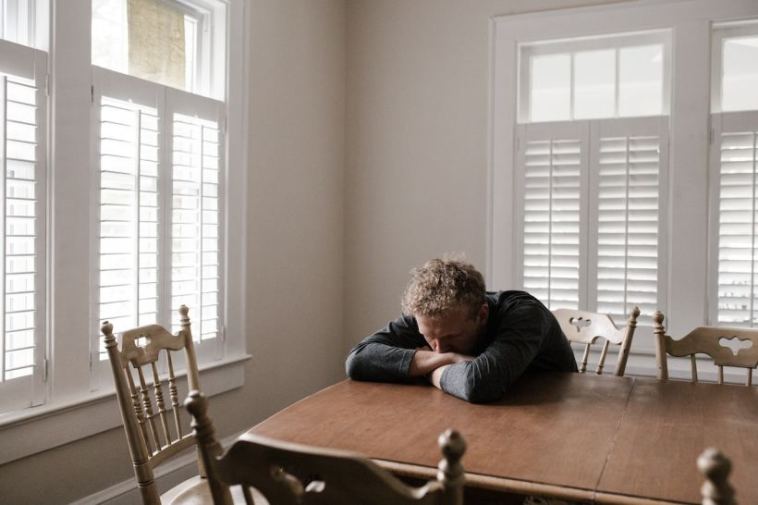- Like
- SHARE
- Digg
- Del
- Tumblr
- VKontakte
- Flattr
- Buffer
- Love This
- Save
- Odnoklassniki
- Meneame
- Blogger
- Amazon
- Yahoo Mail
- Gmail
- AOL
- Newsvine
- HackerNews
- Evernote
- MySpace
- Mail.ru
- Viadeo
- Line
- Comments
- Yummly
- SMS
- Viber
- Telegram
- JOIN
- Skype
- Facebook Messenger
- Kakao
- LiveJournal
- Yammer
- Edgar
- Fintel
- Mix
- Instapaper
- Copy Link
Introduction
Mental health is a state of well-being in which an individual realizes their potential, can work productively, copes with the normal stresses of life, and contributes to their community.
Mental health is not just about feeling “well.” It’s about living a life where you can be proud of who you are as a person and realize your full human potential.
Unfortunately, there is no one-size-fits-all solution to our mental health challenges. For example, cannabis can help some with depression, but it can have the opposite effect on others.
For this reason, it’s often better to seek external assistance, and this can come from you helping your loved ones with their challenges or them working with a professional.
The Importance of Professional Help When Tackling a Mental Health Condition
Mental illness includes depression, anxiety, bipolar disorder, schizophrenia, and more. Millions of people in the US are diagnosed with one or multiple mental and psychological health conditions. So there is a pressing need for professionals who can help in this regard.
Mental health issues can be very complex, and without professional help, it can be difficult to treat them. Professional counsel can help individuals understand their condition and develop strategies to cope with symptoms as well as find ways to make positive changes in their lives.
A professional counselor can provide much-needed support, information, and guidance to people with mental health problems as well as their families.
Counseling also helps individuals identify and modify behaviors that may be contributing to their mental health issues. It can provide a safe space for people to talk openly, express their feelings and receive guidance on how to better manage their mental health.
Additionally, counselors can provide referrals to other professionals, such as psychiatrists and psychologists, if needed. Professional counsel is an important part of any mental health treatment plan. It can be beneficial in helping individuals with mental health conditions find relief and gain control over their lives.
Moreover, Masters in counseling careers are highly rewarding and offer a range of benefits for those who’re looking to go a step beyond being a supportive friend or loved one.
Tips to Help People with a Mental Health Condition
The high prevalence of mental health issues can be gauged by the fact that approximately 970 million people were diagnosed with different types of mental health disorders and substance use disorders worldwide in 2019. Almost 6 in 10 people who have mental health disorders get no medication or treatment. Hence, it is important to raise awareness about mental health issues and ways to detect or deal with them.
There are multiple ways you can help a relative, colleague, or friend who is struggling with their mental health. The most common challenge is that people with mental health disorders often do not believe they are unwell. They may refuse to take medication or follow through with treatment plans. Additionally, they may be disruptive and hostile in the workplace or within their personal relationships.
Here are five tips for helping people with their mental health:
1. Listen and understand
Mental health conditions can be incredibly isolating. When you’re feeling down, anxious, or stressed, it can be tough to muster up the energy to do anything, let alone socialize. But there are plenty of reasons why people with mental health problems should make an effort to stay connected to their friends and loved ones. Here are four ways that listening can help a person with a mental health condition:
-
- Listening reinforces the belief that they are not alone.
- Listening allows you to hear other people’s perspectives which may help change your point of view.
- Listening helps build and maintain relationships which are crucial for emotional support.
- Listening is a form of self-care — it allows you to focus on someone else for a change and provides a break from your own thoughts and struggles.
2. Support and care
Let them know you are there for them, no matter what happens. People who’re struggling with their mental health often feel as if they are in a dark hole with no way out. They may feel like they are doing well when in reality, they are just barely getting by. This can harm them, as it can give them a false sense of security and make it more difficult for them to seek help when needed. Additionally, when people minimally function, they may not be able to take care of themselves or their loved ones, which can lead to further stress and problems. Therefore, offering the utmost support and care is a way to help your loved ones. It is also important for you to give hope and offer encouragement.
3. Avoid Judging
Don’t judge their behavior; educate yourself on mental health disorders and their triggers so you don’t accidentally trigger them while trying to help them out of a tough situation. When someone shares and mentions their mental health problem, rather than judging them, try to recognize and anticipate their hardship and reassure them of your help. Make it clear that you care about them and want them to feel better without making it seem as though you’re judging them for it.
4. Patience and perseverance
Keep in mind that people with mental health disorders are often under a lot of stress, and they may not be able to think clearly when they first come to you with their problem. So don’t expect your first attempt at helping them out to solve anything. You should be cognizant and careful not to upset the other person when speaking to them.
5. Ask appropriate questions
Ask open-ended questions like “How can I help?” and “What else can I do?” instead of telling them exactly what will work best for them. It is important to understand that forcing someone to explain their situation will make them uncomfortable. Allow them time and space from your interactions if they need it or want it. It is important to respect individual boundaries. Exhibit empathy and kindness rather than being hostile towards them so that they feel relaxed in your presence.
Things That Should Be Avoided
- Forcing people to seek professional help. Do not push them into doing so unless they want to do so themselves (if they don’t want to do so at all, then simply let it go).
- Making condescending remarks or making fun of their condition.
- Assuming things about the situation and their mental health.
- Dismissing their concerns.
Conclusion
While it would be great if cannabis was the solution for all our mental health challenges, this is simply not the case. If you have a loved one who is struggling, there are things you can do to help them out.
Exhibiting kindness and empathy and providing support to people struggling with their mental health is crucial for their well-being. If you know someone who has been diagnosed with a mental health disorder, you can follow the tips mentioned above to help them.


